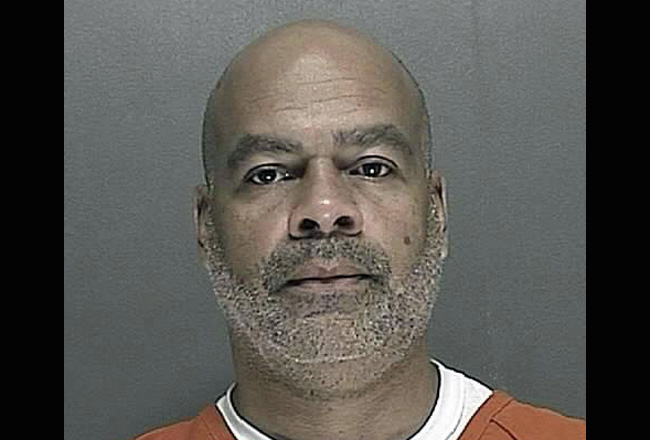
A jury in Daytona Beach today voted 11-1 to recommend death for James “Chico” Guzman in the hacking to death of David Colvin, 48, at a motel on Ridgewood Avenue on Aug. 10, 1991.
It is the first death recommendation in the 7th Judicial Circuit, which includes Flagler County, since U.S. Supreme Court declared Florida’s method of recommending death sentences was unconstitutional in January. The decision prompted the Legislature to rewrite the law. The new law has yet to be reviewed by the Florida Supreme Court.
Under the old rules, a simple majority of the jury could find for death, making Florida the only state in the nation, that allowed a simple majority for such a penalty, and one of only three states that allowed less than a super-majority of a jury’s vote. The new law requires a majority of 10 of the 12 jurors for a death recommendation, even though the U.S. Supreme Court had not focused on hat aspect of Florida’s system. Rather, it had found improper the way the “aggravators” required for a death recommendation–circumstances that make the killing particularly heinous–were tallied: those aggravators could be found by less than a majority if, in some cases, some juries found one aggravator while others found another. As long as the total added up to a majority, the death recommendation would stand.
The new law now requires that the finding of at least one identifiable aggravator be unanimous. Without it, no recommendation for death can stand. And a judge may not impose death without it, as judges were permitted to do previously. In Guzman’s case, the prosecution submitted four aggravating circumstances, including the fact that the killing took place during a robbery and that it involved a sword, which Guzman used to slice Colvin. Another aggravator: Guzman had been convicted of murder after he kidnapped two women in Miami in 1982 and shot one in the head. He served nine years of a 30-year sentence and was released.
Twice before Guzman was sentenced to die for the Colvin murder and twice the sentence was overturned on appeal–the first time because a conflict of interest was uncovered in the public defender’s office, which provided his defense, the second time because one of the witnesses had been paid $500 as a reward. Both decisions resulted in new trials. The third trial took place in late April at the S. James Foxman Justice Center.
Colvin, a 48-year-old businessman, had been visiting Daytona Beach from Virginia when the fateful encounter with Guzman took place. Guzman had robbed Colvin of a gold ring encrusted with 13 diamonds, and $130 in cash.
The jury found Guzman guilty last week, and this morning, after an hour’s deliberation, produced the death recommendation. Circuit Judge Terence Perkins will sentence Guzman at a date yet to be set, following a hearing when Guzman, who sports a tattoo of a wizard on his right hand and of the name “Jesus” on his left bicep, has a chance to present mitigating, or lessening, factors in an attempt to avoid the death penalty.





























Outsider says
Twenty- five years after the murder, three convictions, and this guy is still alive? Why, why, why?
Anonymous says
This is one reason to be against the death penalty just imagine all of our wasted $$$$$$ trying and convicting this guy THREE times for the same crime?? Even if this one is upheld it will be what some 15-20 years to the sentence is carried out?
Deborah Susswein says
Pierre, Would you post this version, not the first one. I was too hasty and had to make some corrections. Thank you.
Thank you Anonymous! I suggest that those who are for the death penalty read Sr. Helen Prejean’s “Dead Man Walking” and “The Death of Innocents.” The latter especially is an eye-opener and if you can still be pro death penalty after reading the brilliant, compassionate, tremendously educational and thoroughly researched “The Death of Innocents,” then I don’t think there is any way to demonstrate to you the futility of this legalized cruel and unusual punishment. As Anonymous says, the taxpayers’ hard-earned dollars are spent on appeal after appeal; the DP is not a deterrent to crime; many innocent men have been murdered; even death row staff are sickened by this process, but they have to do it to feed their families. The list of reasons to ban the death penalty is long. It’s logical, reasonable, financially sound, and emotionally/spiritually aligned with religious and non-religious teachings. Read Sr. Helen’s books. You’ll never forget them.